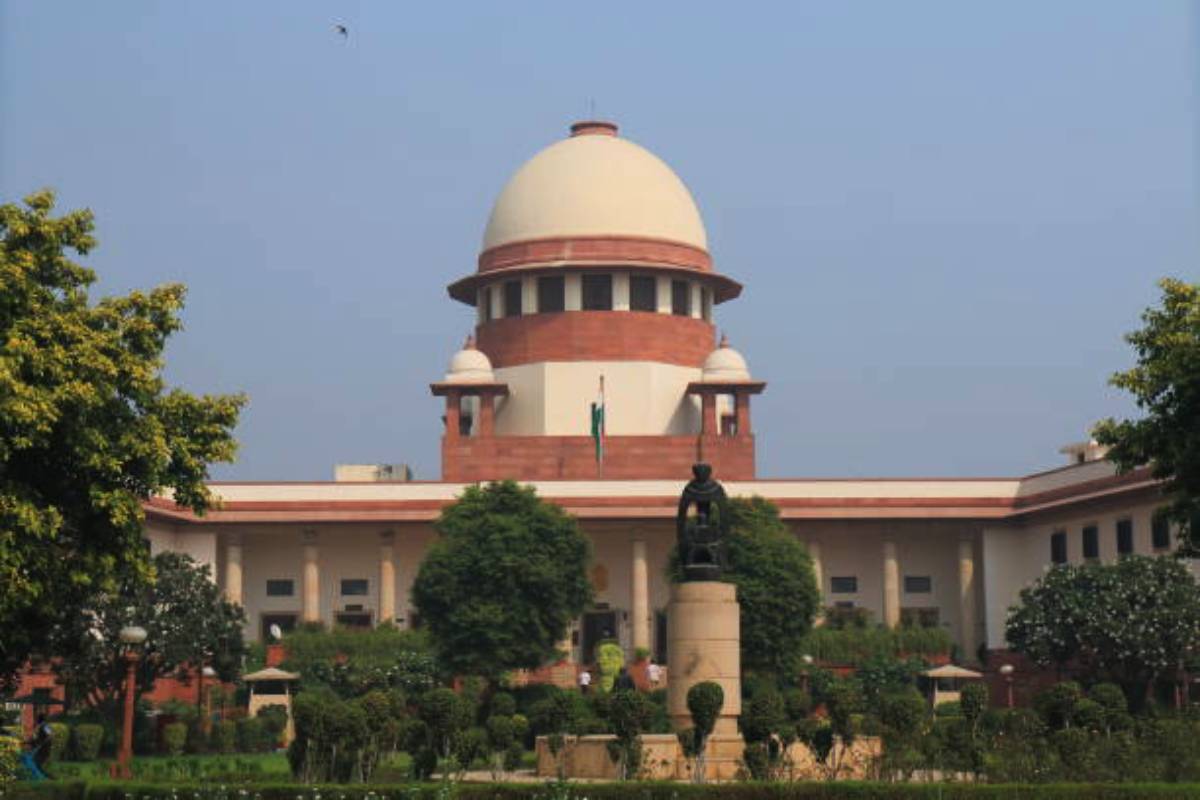Shiv Khera approaches SC, seeks publicity to NOTA as fictional candidate
A bench headed by Chief Justice DY Chandrachud issued the notice to the poll panel.
As far as bail is concerned, the petitioner parties have said that the principle of ‘bail as rule, jail as exception’ be followed by all courts throughout.

Supreme Court of India
The Supreme Court will hear on April 5, a joint plea by fourteen political parties against the alleged misuse of the Central Bureau of Investigation and the Enforcement Directorate to target their (opposition) leaders and seeking laying down of the guidelines governing the arrest, remand, and bail of persons in offences not involving offence of causing serious bodily harm.
The petition by the Congress and 13 other political parties belonging to opposition at the Centre is listed for hearing before a bench comprising Chief Justice DY Chandrachud, Justice PS Narasimha and Justice JB Pardiwala.
A day after the filing of the joint petition by the fourteen political parties, senior advocate Abhishek Manu Singhvi had on March 24 mentioned it for an urgent hearing.
Advertisement
Singhvi in his mentioning for an urgent listing of the petition had told the bench of Chief Justice Chandrachud, Justice Narasimha and Justice Pardiwala that since 2014 (the advent of NDA government) of all the politicians investigated by the CBI and the ED, over 95 per cent belong to the opposition parties.
“I am asking for the guidelines for the future. This is a remarkable convergence of 14 parties against the misuse of the agencies, both CBI and ED,” Singhvi had told the bench in the mentioning on March 24.
The joint petition by 14 political parties has said that the guidelines should fulfil and realise the guarantee of personal liberty entrenched in Article 21 of the Constitution, for all citizens, including those targeted for exercising their right to political dissent and for performing their duties as the political opposition.
“Between 2004-14, (during UPA government) of the 72 political leaders investigated by the CBI, 43 (under 60%) were from the Opposition of the time. Now, (under NDA government) this same figure has risen to over 95 per cent. The same pattern is reflected in ED’s investigations as well, with the proportion of Opposition leaders from the total number of politicians investigated rising from 54 per cent (before 2014) to 95 per cent(after 2014),” said the petition by the political parties.
The petitioner parties have said that ED raids were being used as” tool of harassment” of political opponents, pointing out that of all the raids targeting the politicians belonging to opposition parties have resulted in the filing of complainers in 23% cases.
In contrast, the petition says that between 2005 to 2014 of all the raids by the ED involving politicians, 93% resulted in the filing of complaints. An obvious inference is that most of the raids between 2014 till date are to intimidate and target politicians belonging to the opposition parties.
The petitioners have pointed out that though the number of cases registered by the ED under the Prevention of Money Laundering Act have risen exponentially – from 209 in 2013-14 to 981 in 2020-21, and 1,180 in 2021-22. But only 23 cases have resulted in convictions.
Fourteen political parties that have approached the Supreme court include INC, DMK, RJD, BRS, Trinamool Congress, AAP, NCP, Shiv Sena (UBT), JMM, JD(U), CPI(M), CPI, Samajwadi Party, J&K National Conference.
Giving their grassroot presence amongst the people, the petition says that these 14 political parties together polled 45.19 per cent of the votes cast in the last State/UT Assembly Elections, and 42.5 per cent of the votes cast in the 2019 General Elections, and are holding power in 11 States/UTs.
On the question of arrest and sending an accused to remand of the investigating agencies, the petitioner parties have said that it should be incumbent on the CBI, ED and the court as well that triple test – whether accused is a flight risk, can tamper with evidence and can influence/intimidate the witnesses – has to be satisfied. In case a triple test is not satisfied, the alternatives like interrogation at fixed hours or at most house arrest be used to meet the demands of investigation.
As far as bail is concerned, the petitioner parties have said that the principle of ‘bail as rule, jail as exception’ be followed by all courts throughout, especially in cases where non-violent offences are alleged, and that bail be denied only where the triple-test is met.
Advertisement